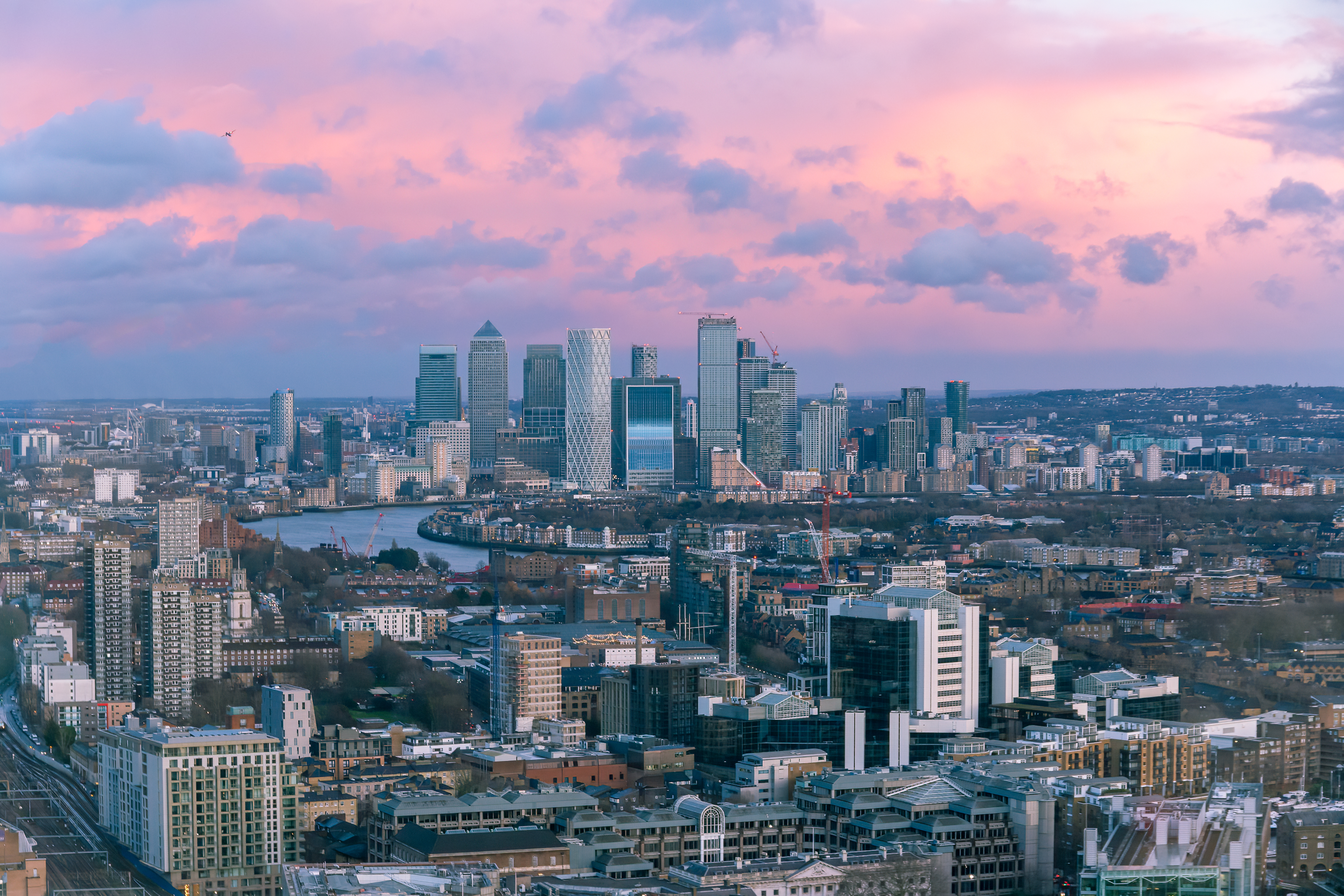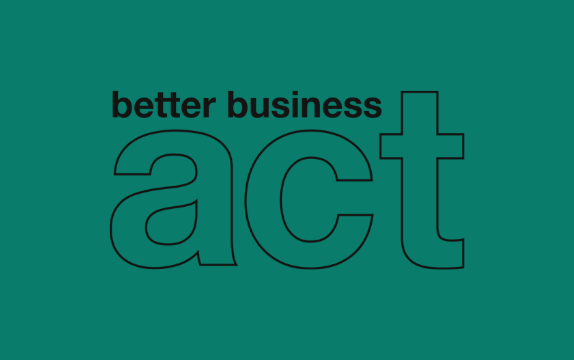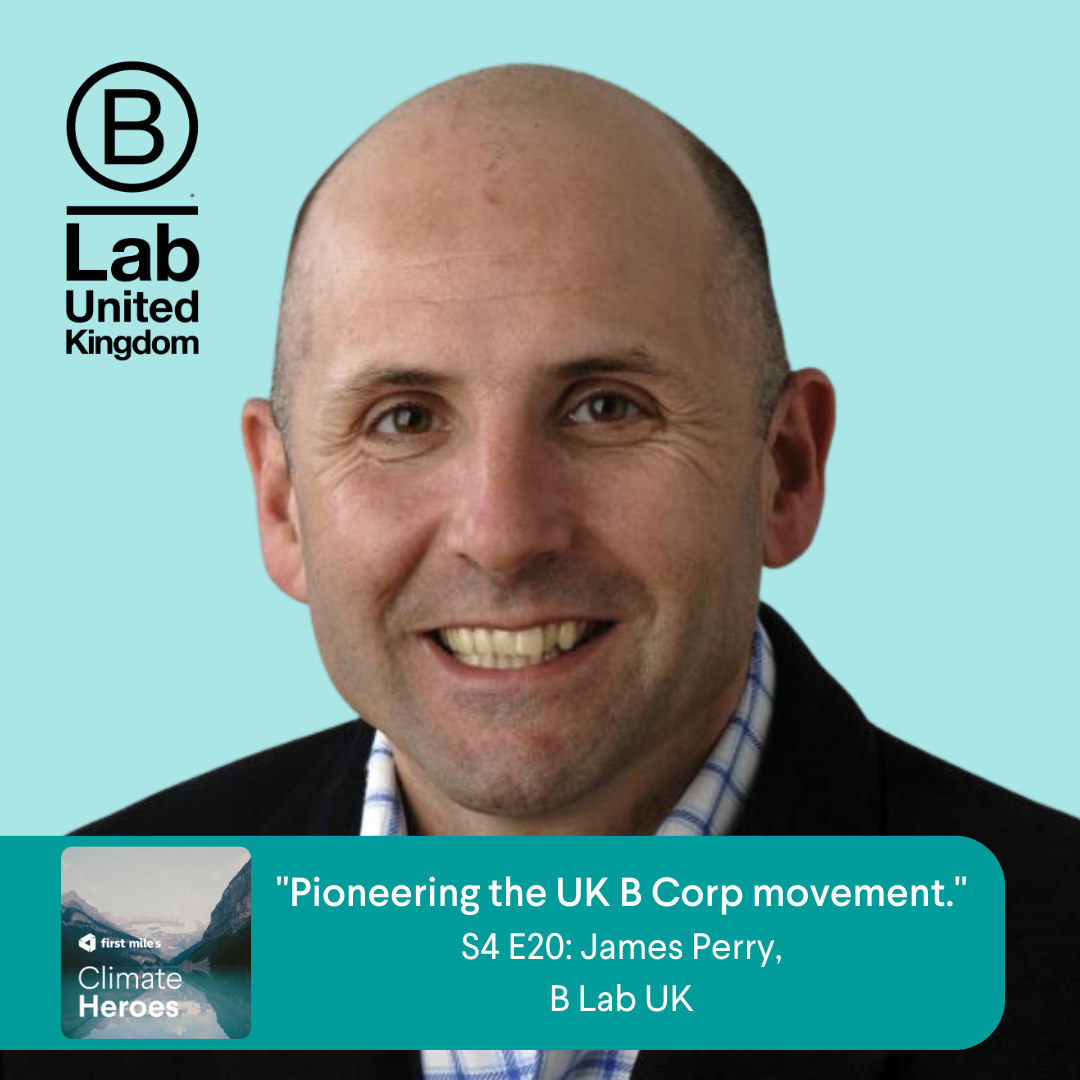Do you want a world where businesses care about more than just raking in the dough? If so, listen to our latest episode of First Mile's Climate Heroes podcast, where we shine a spotlight on James Perry.
Perry is a board member/co-founder of B Lab UK and a co-founder of Cook, the frozen-food company that’s won countless Great Taste Awards. He also co-founded the B Corp movement in the UK. In addition, he’s a founding partner of Snowball, the ethical investment company, and Executive Director of the charity Panahpur.
In our podcast, First Mile's Climate Heroes Perry talks with Bruce Bratley, our CEO, about reforming the economic system to help people and planet, not just shareholders. Have a listen if you’re interested in hearing how business can be used as a force for good. The half-hour chat takes in the importance of a wellbeing economy, B Lab, B Corp, ethical investment and the Better Business Act.
What is Net Zero Week?
This week happens to be Net Zero Week, which is all about helping businesses and consumers find ways to reduce their carbon footprint. After all, we all need to be doing our bit to tackle emissions and stop global warming.
But is it possible to be a business that cares about people and the planet, as well as making money? We think it is. And there’s a name for these companies: B Corps.
Because going net zero is so important, all B Corp companies (including us – one of the first in the waste industry to achieve B Corp status) have committed to achieving net zero emissions by 2030.
Last year, our carbon savings helped us win the Contribution to Achieving Net Zero Award.
Is the economic system broken?

The system is all about chasing financial profit, but that comes at the expense of people and planet. It’s not surprising that we’re in a mess. We’re stuck in the middle of a planetary, biodiversity, climate and social crisis.
What’s the solution? Perry says:
“We need a wellbeing economy where we don’t only see success in terms of material needs, but we think of the wellbeing we’re creating in society.”
Can we build societies that don’t just pursue profit? Perry thinks we can. His ‘eureka’ moment came when he discovered the B Corp concept in San Francisco. Realising that it lined up with his own ideals, he became involved with the organisation and helped set up B Corp UK. Cook became one of the first B Corps in the UK.
What are the benefits of becoming a certified B Corporation?
B Corp is a non-profit network of global business leaders and entrepreneurs who are reinventing business for the better. Together, they’re showing that valuing people and planet doesn’t mean sacrificing profits.
A business can only gain B Corp accreditation if it meets strict standards for social and environmental impact. It’s the ultimate gold star for doing good.
Businesses that become B Corps have had outstanding results and outperform their UK peers. For example, they have a faster growth in turnover and employee headcount and higher expectations about future growth. They also have the same likelihood of success at securing external finance as their peers.
You can read more about the benefits here.
The UK B Corp community is one of the fastest-growing B Corp communities in the world. There are now over 1600 B Corps in the UK, all verified by B Lab.
How does B Lab support businesses in becoming agents for change?
B Lab is all about the triple bottom line – that’s people, planet and profit. Its strategy to transform the economic system is rooted in the global Theory of Change. Its mission is to inspire and enable people to use business as a force for good.
B Lab is responsible for certifying companies as B Corps. Qualifying for B Corp status is tough. You must prove your company has met the highest possible standards in ethics and sustainable business practices to gain B Corp status. Luckily, B Lab provides a whole bunch of resources and tools to help you.
When you sign up to become a B Corp, you join a community of like-minded businesses. B Lab supports you with networking opportunities, events and conferences where you can connect with other business leaders who share your passion for positive change.
In an ideal world, B Corp standards and sustainable development would be the norm. That could happen if the campaign for the Better Business Act succeeds.
What is the Better Business Act and why is it important?

The Better Business Act is a coalition group in the UK that aims to change the law to make sure every company is responsible for its social and environmental impact.
Making changes in our everyday lives is important (e.g. recycling, swapping to an electric car, choosing a green electricity supplier), but we need systemic change to make the big difference. That’s why the Better Business Act is so important.
This Act would change the law that governs how businesses behave, so that it’s no longer optional for companies to consider their impact on the future. The new business strategy would go to great lengths to limit both carbon emissions and greenhouse gas emissions.
What would success look like in an ideal world?
In an ideal world, Perry says, we’ll pass the Better Business Act in the UK (and the equivalent globally). We’ll change how we think about regulation and incentives in the economy.
Instead of prioritising financial profit at the expense of natural and social capital, we’ll have businesses that leave society stronger than they found it by focusing on their environmental performance, business operations and the net zero target.
If you want to hear the full conversation, listen to the entire Climate Heroes Podcast
And you can find out more about First Mile’s net zero initiatives in our 2022 Carbon Report.



